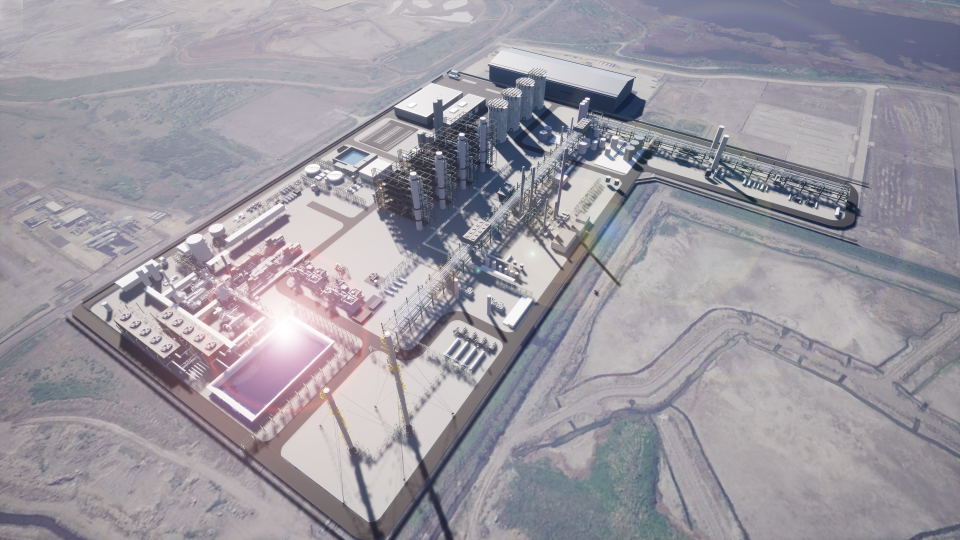Britain’s first dedicated bulk handling terminal for sustainable aviation fuels (SAF) is to be built on Teesside. Output equivalent to 10% of the government’s Jet Zero target for 2030 should begin flowing in 2028, the parties anticipate.
Bulk storage provider Navigator Terminals and developer Alfanar have agreed terms to progress the facility, based around the North Tees rail terminal on the port’s dockside.
It will handle up to one million tonnes per year of end-of-life waste, feedstock used at Alfanar’s plant at nearby Port Clarence.
The plant is earmarked to make over 125,000 tonnes of SAF each year, or more than 165 million litres. Construction is scheduled to begin next year. Today’s deal pledges the two innovators to a joint front-end-engineering and design study, the first step towards construction.
Alfanar’s formulation for its Lighthouse Green Fuels has the potential, the parties claim, to reduce carbon emissions by as much as 80% against conventional jet fuel. Technologies fi gasification using the Fischer Tropsch (FT) method will create a synthesised gas from non-recyclable waste, followed by condensing into the liquid fuel.
The government’s Jet Zero strategy envisages Britain’s commercial aviation reaching Net Zero by 2050. SAF is seen as a versatile ‘drop-in fuel’, easily blended into conventional fossil-based aviation fuel, reaching existing aircraft without modifications and pumping infrastructure.
In planemakers’ developing competition between low carbon hydrogen and batteries, some experts view SAF reclaimed from end-of-life plastics as the best alternative to kerosene for long-haul flights.
Under terms of the agreement Navigator will develop the North Tees rail terminal for the storage and handling of feedstocks for Alfanar’s waste-to-SAF plant. Navigator will also construct handling terminal on its North Tees dockside.
Navigator Terminals’ existing North Tees complex stores road fuels and crude oils at the north east’s only deep-water jetty designed for petrochemicals. Direct pipelines link to the North Sea and rail distribution facilities. Finished SAF will be exported via ship from the North Tees docks or by rail or truck from Navigator’s inland North Tees terminal.
“Navigator Terminals is committed to playing a leading role in delivering Net Zero for the UK”, CEO Jason Hornsby said.
“It is exciting to bring forward plans for the UKs first Sustainable Aviation Fuel handling terminal on our North Tees dockside to rejuvenate this industrial land and push UK aviation that bit closer to Net Zero every time we fly.”
Alfanar’s chief investment officer Mishal Almutlaq responded: “We are delighted to form a partnership with Navigator Terminals.
“We kicked off the FEED study for our Lighthouse Green Fuels project in June 2022 and we are now looking to start engineering works associated with the build out the regional infrastructure on Teesside”
SAF remains in early stages of development. Some observers believe more progress is needed if it is to achieve the energy storage densities required by conventional jets for long-haul flights.




